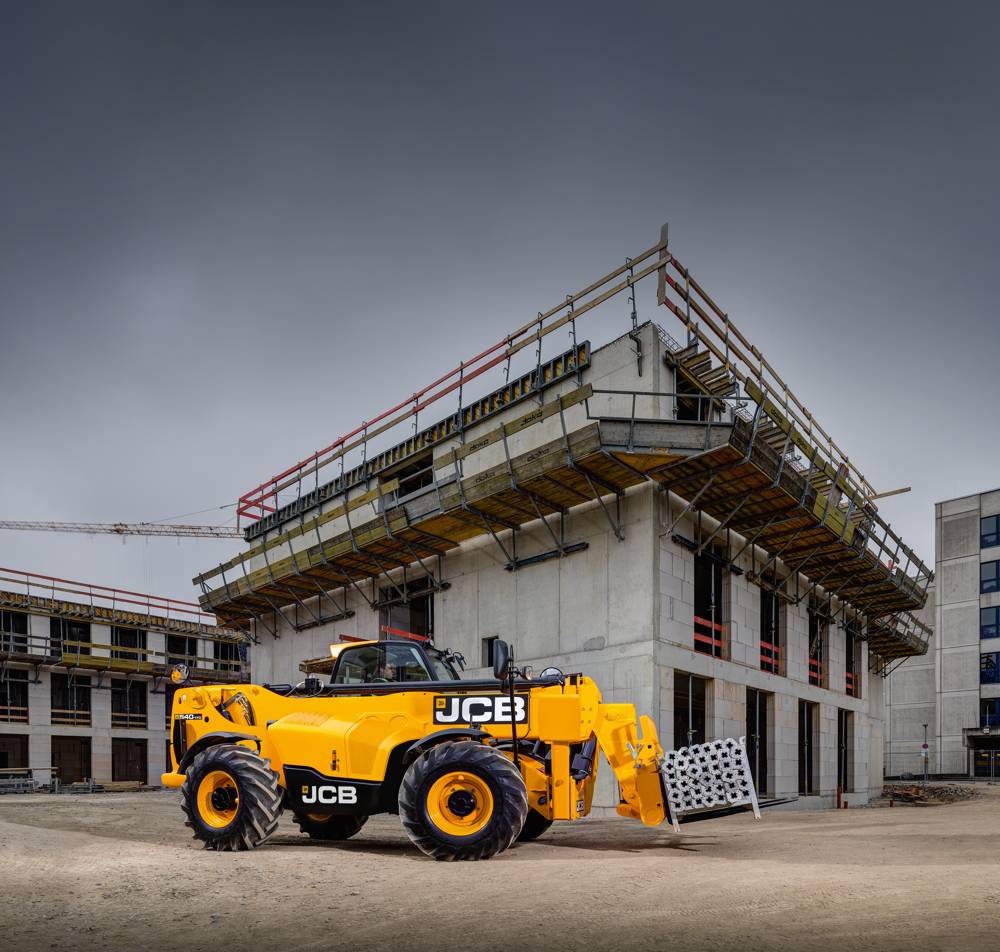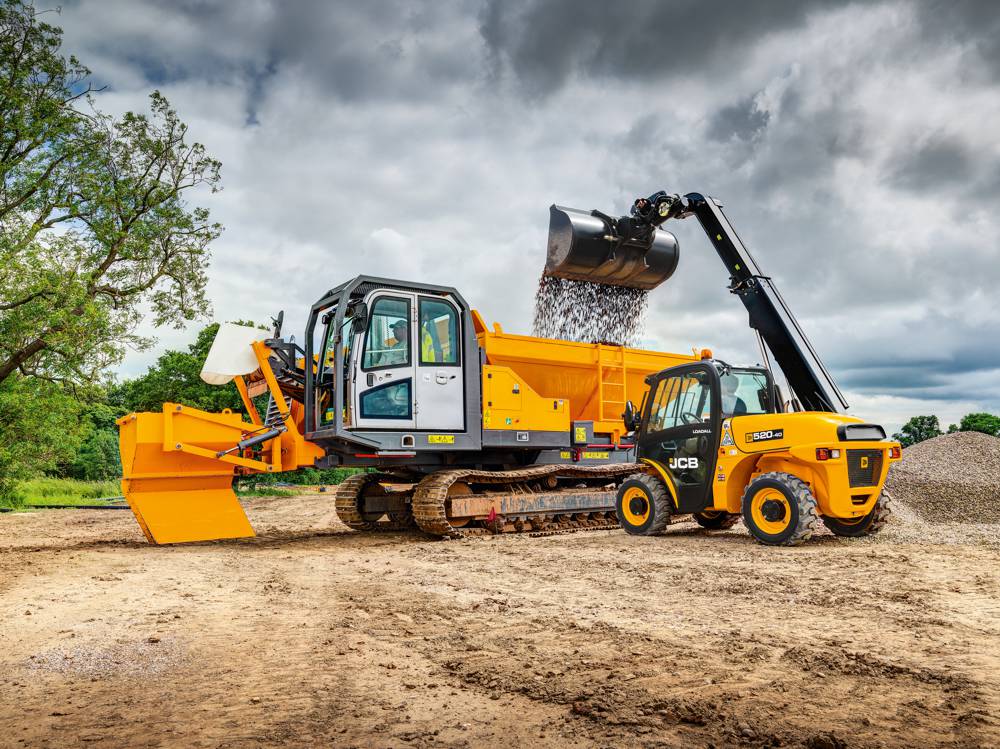JCB updates Loadall Telehandlers for the European construction market
JCB’s construction range of Loadall telescopic handlers for European markets are now available with Stage V compliant engines.
From the 531-70 through to the 540-200, the full line of machines can be powered by the JCB 448 DieselMAX engine, delivering 81kW (109hp).
Key features include:
- Stage V engines with no requirement for EGR
- Auto engine stop reduces fuel consumption and excessive idling hours
- Four types of regeneration to reduce downtime
- Machine dimensions unchanged
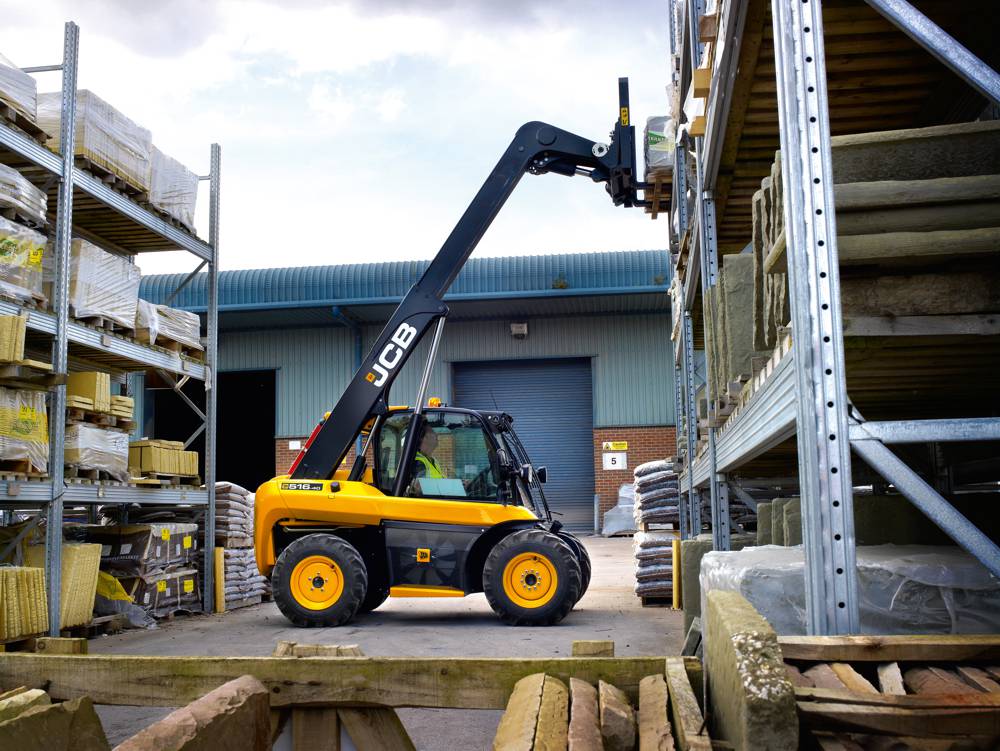
JCB has launched a revised range of construction Loadall telehandlers, powered by the 81kW (109hp) Stage V JCB 448 DieselMAX engine. This complements the Stage V 55kW 430 DieselMAX models that were unveiled in 2019. To meet the emissions regulations JCB has utilised a combination of next-generation particulate control technologies. This includes a Diesel Oxidation Catalyst (DOC) with a combined and integrated Diesel Particulate Filter (DPF) and Selective Catalytic Reduction (SCR), in a compact one-can solution.
This highly effective integrated exhaust treatment technology removes the requirement for Exhaust Gas Recirculation (EGR). The engine now uses a simpler, electronically-controlled Proportional Wastegate Turbocharger, in place of the previous Variable Geometry Turbocharger. New injectors increase the number of pulses per cycle and the engines benefit from improved cold-start performance.
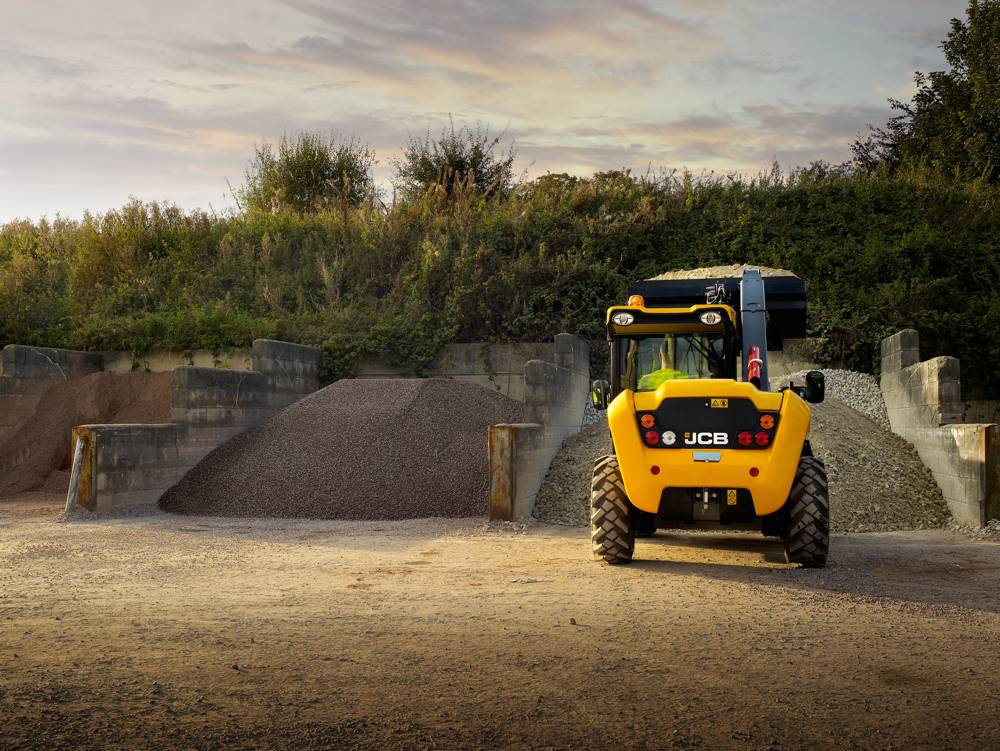
The Loadalls are equipped with larger capacity fuel filters, though the micron rating is unchanged. The water trap capacity has also been increased to five times the capacity of the outgoing T4F engines. However, the Stage V JCB 448 has the same footprint as the previous units, so there are no changes to machine dimensions, turning circles or bonnet lines. Indeed, the class-leading right-hand visibility over the engine pod is improved slightly, as the exhaust pipe is no longer visible, passing through a new integrated vent grille.
The Stage V machines also feature an auto engine stop system, that activates if the engine is left idling for more than 3 minutes. This reduces fuel consumption and exhaust emissions on site.
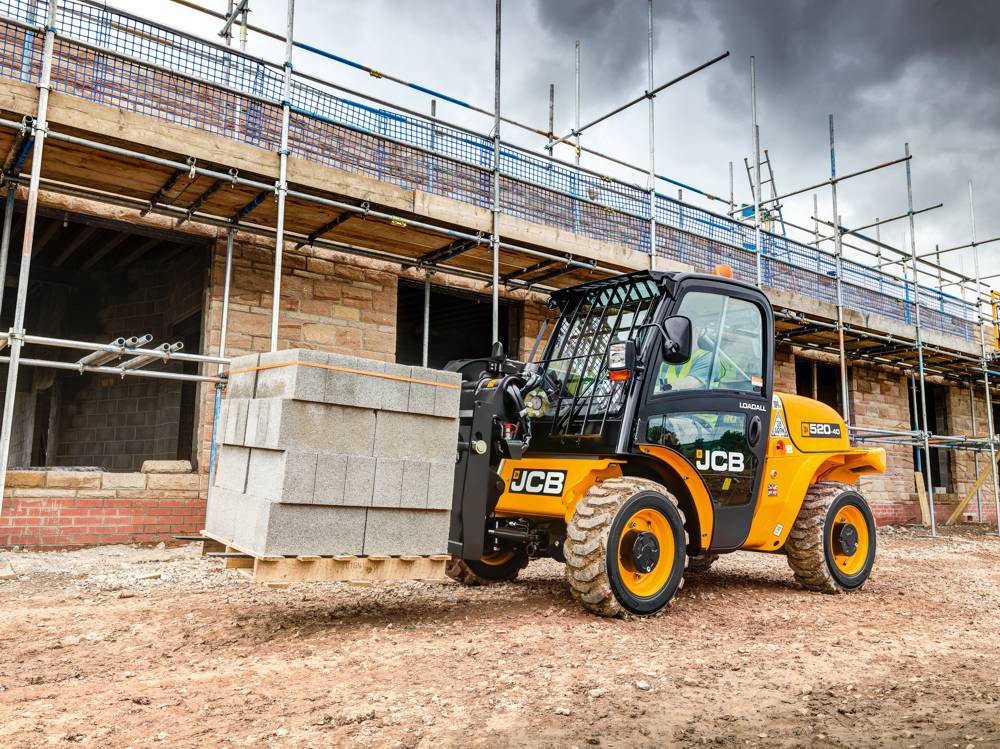
There are four types of regeneration available with the new single-can system: Passive, Active Manual and Service. In both Passive and Active regeneration, the machine can continue to operate with no loss of performance. If a manual regeneration is required the machine will need to be parked, during a lunch break for instance.
The Manual setting will only be required if an Active regeneration has been stopped 20-30 times, or if the soot build up levels require it.
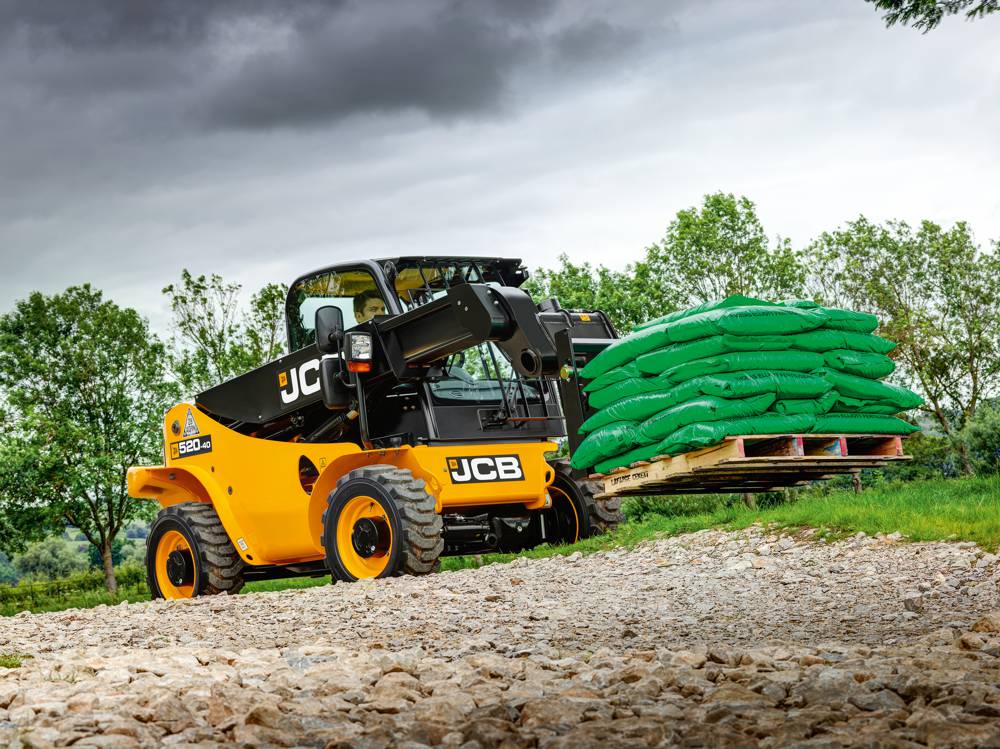
Lastly, there is a Service regeneration setting, that can be activated by the local JCB dealer. DPF soot levels can be easily monitored from the site office, within the JCB LiveLink telematics system.
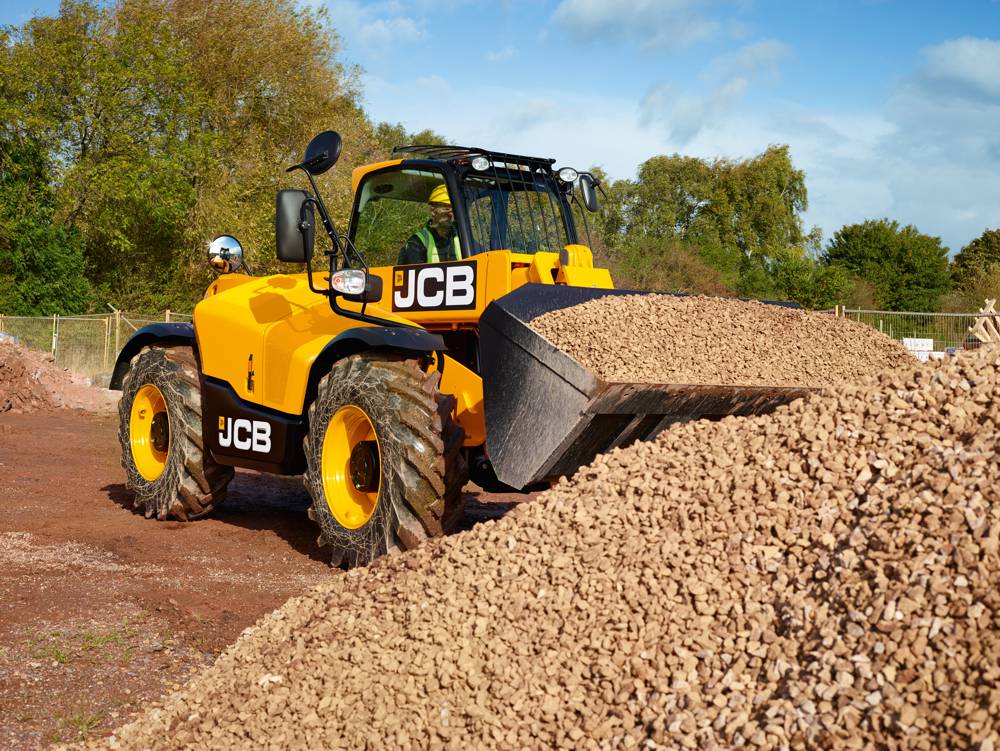
Compact Stage V solution
JCB’s compact 516-40 and 520-40 compact Loadalls now meet the European Stage V emissions regulations, with the adoption of a mechanical, naturally-aspirated indirect injection diesel engine from Perkins.
The 1.7-litre engine delivers 19kW (25hp) with 98Nm of torque in both machines.
